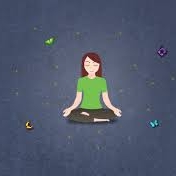GOOD DIGESTIVE HEALTH Post #2
Indeed, 70% of the Earth is covered by water. 55-65% of an adult’s body is made of water (the number is even higher for infants and children), the human brain is 75% water.
So it’s no wonder that human beings, on average, cannot go more than 3 days without water. We literally are what we drink.
Experts have said for years that people should drink 64 ounces of water each day – and for good reason. Water is vital. It delivers oxygen to our cells, which gives our cells energy. It enables our cells to distribute essential nutrients within our bodies. It removes waste products like toxins that our organs reject. Water helps to lubricate joints and provide oxygen for easier breathing. It regulates our body temperatures so we don’t overheat. It enables normal electrical properties in our cells (including neurotransmitters) and empowers natural healing in the body. That is why so many health issues result from dehydration; without water, our organs cannot properly function. This is especially true for the gallbladder, pancreas and stomach, the three main organs involved in digestion. Indeed, signs of dehydration range from seemingly benign food cravings to weight gain, heartburn, constipation and even ulcerative colitis.
But knowing when to drink water can be almost as important for digestion as knowing how much to drink. Drinking copious amounts of water, or any fluid, during meals is not good for good digestive health. Water can dilute your stomach acid to the point that it cannot properly break down your food, and as a result, large particles of food end up in places the body cannot recognize. This can cause a whole host of issues such as leaky gut, reflux and even an autoimmune response.
So, how do you know if you are dehydrated?
For starters, if you’re thirsty or your fingers are pruning, you are already dehydrated. So you must get ahead of dehydration and drink at least 8 glasses (of 8 ounces) of water daily. But remember, you want the water to reach your cells – you don’t want it go to right through you (as in, drink a glass of water, urinate 10 minutes later). If you are having a retention issue it might be because you are low on electrolytes or minerals. You can drink your water with a dash of good sea salt or high quality electrolytes. You can also dress up your water like you’re at the spa, or use the following foods to help you reach your daily dose.
Fruits and Vegetables with High Water Content: | |
Watermelon, Strawberries | 92% |
Grapefruit | 91% |
Cantealoupe | 90% |
Peaches | 88% |
Pineapple, cranberries, oranges, raspberries | 87% |
Apricot, Blueberries, Plums | 86% |
Apples, Pears | 84% |
Cherries, Grapes | 81% |
Cucumber, lettuce | 96% |
Zucchini, Radish, Celery | 95% |
Tomato | 94% |
Green cabbage | 93% |
Cauliflower, Eggplant, Red Cabbage, Peppers, Spinach | 92% |
Broccoli | 91% |
So, the next time you’re irritable, moody, depressed, anxious or have a headache, ask yourself: “How much water have I had to drink today?”




